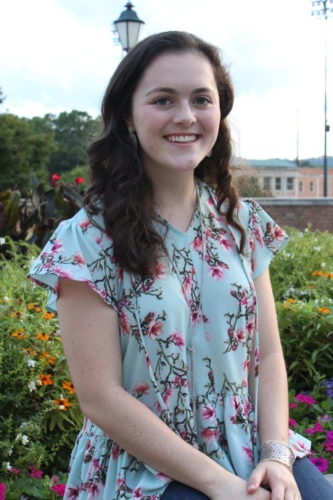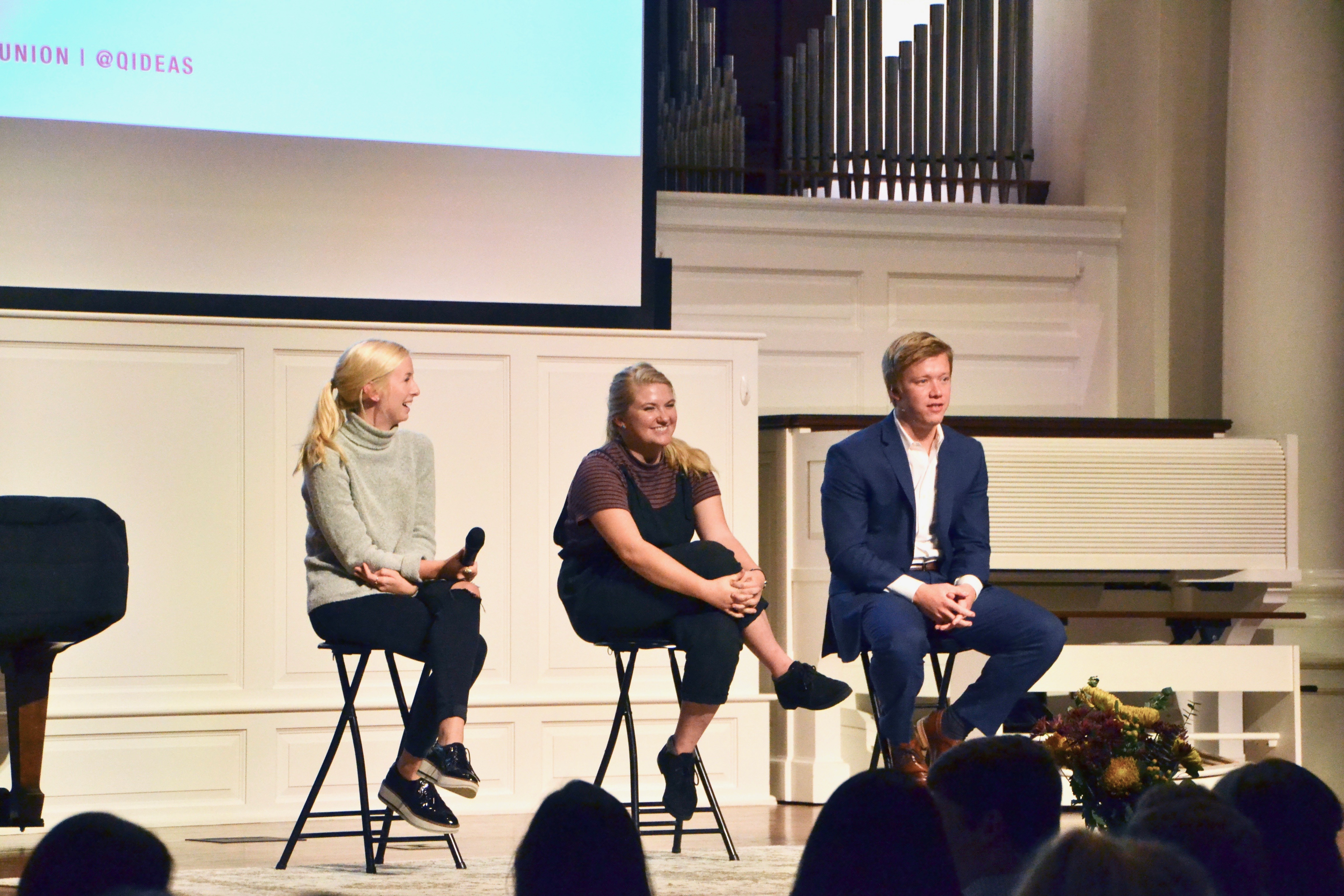What does it look like to have a respectful conversation with dialogue that does more than scratch the surface of important topics in 2018? According to Q Union’s national and student speakers this year, cultural change towards the good requires unordinary acts of hospitality, intentionality, and humility. Through the Q organization, founder Gabe Lyons seeks to create a space in which people move past the idea that the loudest voice in a dialogue is always the correct voice.
On Oct. 25 , Samford hosted Q Union on campus as one of 22 colleges and universities around the U.S. The event, broadcast to over 25,000 viewers, consisted of nine-minute talks led by national speakers and chosen student leaders, with ample time for audience discussion. Attendees were asked to discuss what topics challenged and inspired them the most, and how they could respond to these topics through countercultural actions. Long after Samford’s last student speaker took the stage, conversations for the good continued in Reid Commons.
National speakers Jo Saxton, Scott Harrison and Bob Goff provided a national frame for the event. Saxton spoke first about hospitality and the progressive step of seeing all people as truly equal.
“A love directed towards the other, the stranger, the foreigner,” Saxon said.
She also asked the audience to think about how today’s leaders demonstrate hospitality that unifies people from different backgrounds, or how they fail to do so. According to Saxton, the hospitable lifestyle is an unfashionable but meaningful way of life that can inspire cultural change.
Harrison’s talk, “Solving Problems Together”, addressed the intentionality behind a global non-profit called Charity Water. He highlighted the unifying purpose behind the non-profit, and that 100 percent of public proceeds go directly toward its cause of providing people around the globe access to clean drinking water. This charity reaches beyond political, religious and social divisions, as people from all backgrounds can unite to provide this basic need to families and communities.
In Harrison’s view, organizations such as Charity Water have the unique power to bring good to a divided world. While the goal of providing water to all in need is a daunting task, Harrison refuses to approach his work with anything besides positivity.
When reflecting on the mission of Charity Water, Harrison said, “Do not be afraid of work that has no end…embrace that.”
The final and renowned national speaker, Bob Goff, spoke about the necessity of humility when it comes to true conversations. Goff promoted his latest book, “Everybody Always” during his talk. To Goff, engaging people in loving and meaningful conversations most importantly requires humility.
In his powerful conclusion, Goff said, “I want to be remembered for my love.”
Samford’s student speakers focused on topics that were directly relatable to students and their challenges on campus. Senior Lucy Kate Brown shared her summer experience working with imprisoned men in her talk “The Keys to Freedom.” She spoke on the cyclical nature of incarceration and challenged the audience to show radical hospitality to those impacted by U.S. prison systems.
“We see incarceration as an easy fix in America, but the problem is too complex,” Brown said.
Brown’s experience and personal calling reflected in the Biblical passage Matthew 25, challenged cultural norms of how prisoners are viewed in the U.S. Brown concluded her talk by encouraging students to consider working with the imprisoned as a career, whether it be in a ministerial, medical, or legal capacity.
Junior Julia Bradley spoke about women as church leaders in her talk “Women, Ministry, and Moxie.” Bradley offered her perspective of women’s role in the church as one personally called into ministry. She spoke against the judgement and lack of encouragement that often results when a woman enters into the ministry field. As a voice for many in her situation, Bradley said that women should not feel as though they are making a rebellious cultural statement when they decide to pursue ministry.
“The very essence of Christianity was entrusted to women,” Bradley said as she described how Jesus treated women in the Gospel story.
Ultimately, Bradley called for more moxie and fearlessness among women who are considering leadership roles in the church. Bradley encouraged the audience to uplift women who have gifts for ministry and leadership instead of disregarding or even discounting their potentials.
Lastly, Senior Peyton Welch led a talk about racism called “A Dangerous Quiet,” and described his experience as a Birmingham Young Life leader at Woodlawn High School. Welch talked about the figurative and physical fences existing in Birmingham schools, churches, and neighborhoods that continue racism. He offered concrete ways for Samford students to build bridges instead of fences when it comes to the ever-present issue of race. Using the acronym READ, Welch encouraged his fellow students to read diversely, enter into situations and spaces outside of comfort zones, ask meaningful questions, and listen to others well. When it comes to stopping the practice of racism in the U.S., silence is not the answer he said.
“An unnamed injustice will never fix itself,” Welch said.
For students interested in continuing the conversations sparked on Oct. 25, Q Dinners will be offered around campus during the week of Nov. 12. The focus of these dinners is to rise above divisive and partisan politics and engage in conversations that inspire unity and respect.





